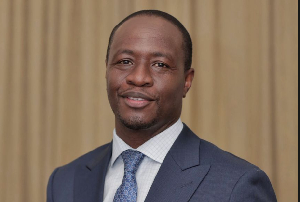The Phase 2 of the AfCFTA agreement has been agreed and approved with the various protocols fashioned to promote fair trade and competition among businesses in the Free Trade Area.
The agreed protocols, namely intellectual property rights (IPRs), investment and competition policy are expected to enhance competition within the free trade area for improved market efficiency, inclusive growth, and the structural transformation of the African economies, among other objectives.
Breaking the subject down to the public on the Eye on Port TV program, West African Regional Director for global research and advocacy institution, CUTS International, Appiah Kusi Adomako says the competition protocol will present tremendous benefits for not only businesses and corporations but the consuming public in Africa. He explained that it will ultimately ensure that businesses compete freely on the basis of highest possible quality of products for lowest possible price.
Nonetheless, the expectation for party states like Ghana, without competition law and enforcement bodies is to enact competition laws and establish competition enforcement bodies upon entry into force of this protocol.
Ghana’s competition bill is expected to be taken to parliament by end of this year.
He said, presently a number of competition concerns exist citing examples in the maritime transport sector of Ghana.
“For example a shipping company, sets up its own logistics firm in the port as well as a freight forwarding firm in a horizontal integration scheme. A problem that can arise is when they decide to give rebates to customers for using their services, driving away competition.”
Adding his voice, Executive Director of the AfCFTA Policy Network (APN) Group, Louis Yaw Afful also said anti-competitive practices lead to unfair monopolies which not only minimizes accountability on the part of such firms, but deter newer businesses from springing up in the sector.
“Sometimes I wonder why in Africa we are not able to bite with our competition laws. If you take a look at the governing structure of businesses, you realise that other players who are not private sector have strong shares in these companies. Just like the oligarchs in Russia, if you have the referee as a player what happens?” Mr. Afful quizzed, lamenting the roles of public sector officials in anti-competition practices.
Coming into force of the competition protocol, state parties shall be required to designate a body as a focal point for the implementation of this protocol and endeavour to harmonize their competition laws to ensure consistency with this protocol. State Parties will have to also ensure that their respective competition laws adhere to the principles of transparency, independence and procedural fairness.
The trade experts revealed that, the AfCFTA Protocol will still allow national competition laws and regional laws the prerogative to preside over competition matters within their jurisdictions.
Touching on the investment protocol, Mr. Adomako says the policy will discourage party states from providing unfair incentives to AfCFTA-participating firms in their country.
As a guide for investment in Africa, the protocol he says will also ensure state parties fulfil their responsibilities of protecting investment assets within their country.
The intellectual property protocol he said, will protect innovation of African creatives and businesspersons. He says this crucial step, can finally inculcate a culture where Africans obtains patents for their ideas and innovations.
Business News of Friday, 4 August 2023
Source: Eye on Port
New AfCFTA protocols will create a level-playing field for businesses - Appiah Kusi Adomako
 Wa Regional Director, CUTS International, Appiah Kusi (L) & Executive Director, APN Group, Louis Yaw
Wa Regional Director, CUTS International, Appiah Kusi (L) & Executive Director, APN Group, Louis Yaw












